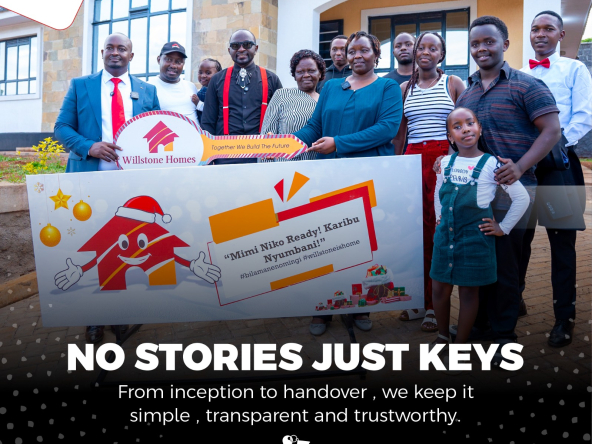For decades, the real estate conversation in Nairobi has revolved around location, security, and access to transport. But beneath this surface lies a quieter, grittier factor that is increasingly shaping housing equity — sanitation infrastructure Nairobi estates. In many of the city’s lower-income neighborhoods and satellite towns, the continued use of pit latrines and poor sewage planning is now not just a health hazard, but also a direct drag on home values.
From Umoja II to Kayole, Dandora, and parts of Pipeline, many estates that once saw rapid property development are now experiencing a depreciation wave — and experts say outdated waste systems are at the heart of it.
Why Sanitation Is Becoming a Property Value Metric
A 2023 report by the Kenya Alliance of Resident Associations (KARA) revealed a stark correlation: estates with functioning sewage and flush systems recorded 18–25% higher property valuations compared to similar homes within the same zone but reliant on pit latrines or outdated septic systems.
“We often underestimate how deeply infrastructure affects real estate,” says Judith Naliaka, a property valuer based in Eastlands. “For middle- and low-income areas, sanitation is now one of the biggest dealbreakers or value-adds.”
Indeed, pit latrines in urban Kenya, originally meant as temporary stopgaps in peri-urban areas, have become permanent features. In Pipeline, for instance, over 60% of multi-storey rentals still rely on communal pit systems — many unlined and prone to overflow.
Read Also: Smart Estate Security in Nairobi: Blending Tech and Guards in Gated Communities
The Health and Legal Costs of Poor Waste Systems
The consequences go far beyond bad smells. According to a joint study by the Ministry of Health and Nairobi Water and Sewerage Company (2022), over 40% of Nairobi’s waterborne disease outbreaks in the last decade originated in areas with unregulated sanitation systems.
Moreover, in 2021, NEMA and the Nairobi County Government launched crackdowns on landlords operating large rental units without approved waste disposal. Over 300 properties in Embakasi, Githurai, and Mukuru were flagged — with tenants often bearing the brunt through evictions or emergency relocations.
This has added a new risk layer for investors: real estate sanitation Nairobi is now not just a livability issue — it’s a legal liability.
Why Upgrading Plumbing Adds Instant Equity
On the flip side, developers and landlords who have invested in modern waste infrastructure are seeing immediate gains. In Umoja Innercore, a block of 12 flats that replaced its shared pit latrines with internal plumbing and connected to the city sewer line saw monthly rent per unit rise from KES 9,000 to KES 12,500 — a 39% jump in ROI within six months.
“We installed a biodigester, converted units to ensuite, and got a water recycling permit,” says landlord Peter Onyango. “Tenants from neighbouring buildings lined up to move in.”
Upgrading plumbing in estates, especially in areas where Nairobi Water already has existing mains nearby, costs an average of KES 250,000–500,000 per building — modest compared to the long-term returns in rent or resale value.
Read Also: Digital Nomads and Satellite Towns: Can Nairobi’s Outskirts Become Africa’s Remote Work Capital?
Case Study: The Kamulu Sewer Collective
In Kamulu, on the Nairobi-Kangundo corridor, a group of 20 landlords co-funded a localized mini-sewer system to connect their estates to a single biofiltration unit. They pooled funds to lay underground piping, treat greywater, and install flush systems in over 100 rental units.
Result: not only did rental prices rise, but their buildings were exempted from new NEMA inspections introduced in 2023. Additionally, their estates were listed as “infrastructure-compliant” on key property portals — giving them premium visibility online.
“Before, we were just fighting cholera and blocked soak pits,” says landlord Margaret Wambua. “Now we’re attracting diaspora tenants.”
Challenges to Upgrading in Nairobi’s Lower-Income Estates
Still, converting pit latrines into modern flush systems isn’t without challenges:
- Dense construction: In areas like Kayole or Githurai, narrow alleys and congested builds make retrofitting difficult.
- Legal ambiguities: Many buildings were erected without approval, complicating permits for sanitation upgrades.
- Cost reluctance: Many landlords operate on tight margins and prefer short-term profits over capital investment.
- Land tenure issues: Especially in informal zones like Mukuru, unclear land ownership hampers collective infrastructure efforts.
Despite these, county urban planners say new by-laws are being proposed to enforce sanitation upgrades — with potential incentives like fee waivers and subsidized piping.
Why Buyers and Renters Are Waking Up to Infrastructure
The modern urban tenant, even at the budget level, is more aware and more demanding. Prominent local platforms now list waste management in Nairobi estates as a searchable filter. Similarly, tenants’ WhatsApp groups in areas like Fedha and Tassia routinely share information about which flats have working plumbing versus those still using bucket systems.
“If you want middle-income tenants who’ll stay long-term, you can’t have them sharing one stinking pit,” says real estate agent Rachel Chebet, who focuses on rentals in Donholm.
Landlords now see that urban infrastructure and housing equity are directly tied — not just through comfort, but through market pressure and tenant turnover.
Read Also: Why Luxury Real Estate Is Quietly Moving to Limuru and Tigoni — Away from Traditional Karen/Kitisuru
From Invisible to Indispensable
In the past, sanitation was often an afterthought in Nairobi’s real estate development — especially in low-income areas. Today, it’s become a front-line factor in determining both home livability and long-term value. The legacy of pit latrines still hangs over many urban estates, but the winds are shifting.
The future of sanitation infrastructure Nairobi estates will depend on a blend of regulation, public-private investment, and a willingness by landlords to see plumbing not as a cost — but as capital.
As Nairobi continues to densify and informal builds become formal markets, the estates that upgrade will not only retain value — they will define the new standard of dignity, health, and profitability in urban Kenya





